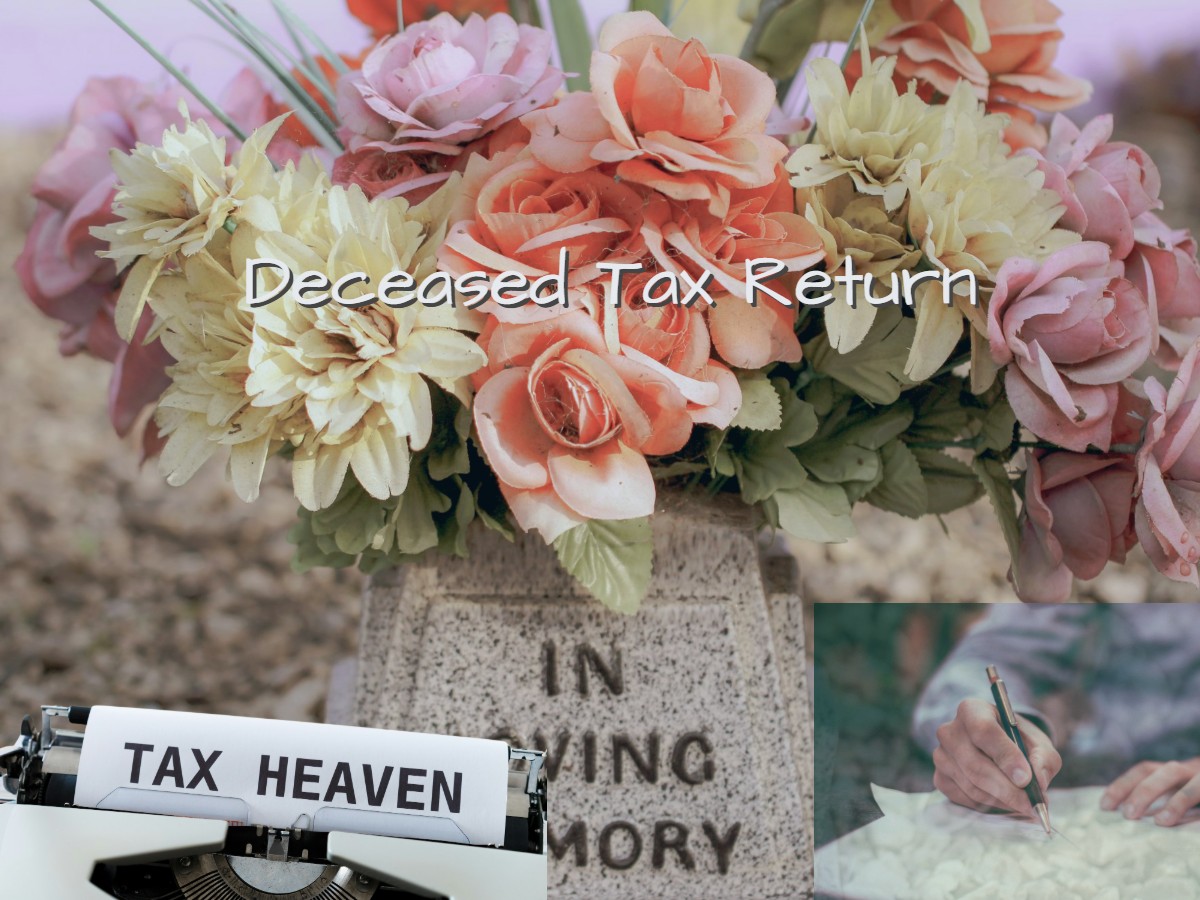Managing a Deceased Estate Tax Return and affairs
Lodging a final Deceased Estate Tax Return is one of the essential things to do when managing someone’s final affairs. Dealing with the loss of a loved one is a deeply emotional and challenging time. Beyond grief and sorrow, there are often numerous administrative tasks to navigate. One of these tasks is managing the deceased person’s tax return. It can seem daunting, especially if you’re unfamiliar with the tax system. However, understanding the process can make it less overwhelming. We, as Accountants who specialise in this area, can help.
In the Australian context, the taxation obligations of a deceased person don’t simply disappear upon their death. These obligations may be transferred to their legal representative or the executor of their will.
. It is a crucial step in finalising the deceased’s affairs and ensuring compliance with the Australian Taxation Office (ATO).
Understanding a Deceased Estate Tax Return in Australia
When a person dies, their tax obligations do not automatically cease. Instead, these obligations transition to their deceased estate. This means that any income earned from the day after the person’s death until the end of the financial year must be declared in the deceased person’s tax return. Generally, a deceased person’s tax return is prepared in the same manner as a living person’s tax return. This includes all income, deductions, and tax offsets up to the date of death. However, there are specific rules and regulations governing the taxation of deceased estates. These include the treatment of superannuation death benefits, capital gains tax, and testamentary trusts.
Legal responsibilities for managing a deceased’s affairs and the final deceased estate tax return
The responsibility for managing a deceased estate’s tax falls primarily to the legal representative. This can be the will’s executor, a court-appointed administrator, or a trustee. The legal representative is responsible for lodging the deceased estate tax return from the start of the income year until the date of death. They must also lodge a tax return for the deceased estate for any income earned after the date of death by the estate.
In addition to lodging tax returns, the legal representative must also pay any tax owed. They may use the deceased estate’s assets to do this. It’s important to understand that as a legal representative, its your role to ensure that all tax obligations are met.
Who is responsible for filing a final tax return for the deceased person?
The executor of the will, the court-appointed administrator, or the trustee is responsible for filing the deceased estate final tax return for someone who has died. This individual is often referred to as the legal personal representative (LPR). Their role is to manage the deceased’s tax affairs. The LPR’s tasks include notifying the ATO about the person’s death. It also involves gathering all necessary financial information, preparing and lodging the deceased person’s tax return, and paying any outstanding tax from the estate’s assets. We recommend working through the issues slowly. Don’t be pressured by beneficiaries eager to access the money. Many of our clients engage a proactive solicitor, such as Brett Hayton of Hayton Kosky, to manage estate-related legal matters.
Steps in filing a deceased estate tax return and final administration
Filing a deceased estate tax return involves several steps.
First, the legal representative should notify the ATO of the death.
This can be done by sending a copy of the death certificate, along with a written notice, to the ATO. The ATO is often notified by other sources, such as births, deaths, and marriages.
Next, the representative should gather all necessary financial information. This will likely include bank statements, investment reports, and details of any superannuation funds. The data will be used to prepare the deceased person’s tax return.
The third step is to complete the tax return. Therefore, upon lodging the tax return, the representative must pay any outstanding tax before making final distributions. The ATO will note that this is the final return. Remember, these steps can take time and require attention to detail. It’s crucial to stay organised and keep accurate records throughout the process.
Common Issues in Managing a Deceased Estate Tax Return
Managing a deceased estate tax return can be complex and time-consuming, particularly for executors unfamiliar with tax and estate administration. A deceased estate often has unique tax obligations, and several common issues can arise, complicating compliance and delaying finalisation. At the time of the passing of your loved one, you will experience a number of mixed emotions, from sadness to frustration and anger. Take time to reflect; a lot of the administration of an estate will take time.
Incomplete or Missing Financial Records
One of the most common challenges in administering a deceased estate is incomplete or missing financial information. Executors are required to report income earned by the estate, yet bank statements, investment records, or dividend summaries may be challenging to locate.
In these circumstances, the executor or legal personal representative may need to contact banks, superannuation funds, share registries, and other financial institutions to obtain historical records. This process can be time-consuming and stressful, particularly where affairs were not well documented prior to death.
Proactive estate planning can significantly reduce this burden. Clear records, asset registers, and professional advice during life can help ensure that, upon death, estate administration is far more straightforward.
Complexity of the Deceased’s Financial Affairs
Another common issue when preparing a deceased estate tax return is the complexity of the deceased’s financial position. When the deceased had multiple income streams, significant investments, trusts, or business interests, tax reporting obligations can quickly become complex. Capital gains tax, business income, trust distributions, and timing issues often require specialist knowledge. In these cases, engaging an accountant or tax adviser experienced in deceased estate taxation is often essential to ensure compliance and avoid costly errors.
Executor Responsibilities and Support
Acting as an executor is a significant responsibility. Executors are legally responsible for ensuring the deceased’s estate meets its tax obligations and that returns are lodged correctly and on time.
With a basic understanding of the process, good organisation, and patience, managing a deceased estate can be handled effectively. However, executors should not hesitate to seek professional guidance when needed. Support from experienced advisers can ease the burden, reduce stress, and help ensure the estate is administered correctly and efficiently. Finally, we strongly recommend that you cherish the memories and celebrate the happy times that have been had.





